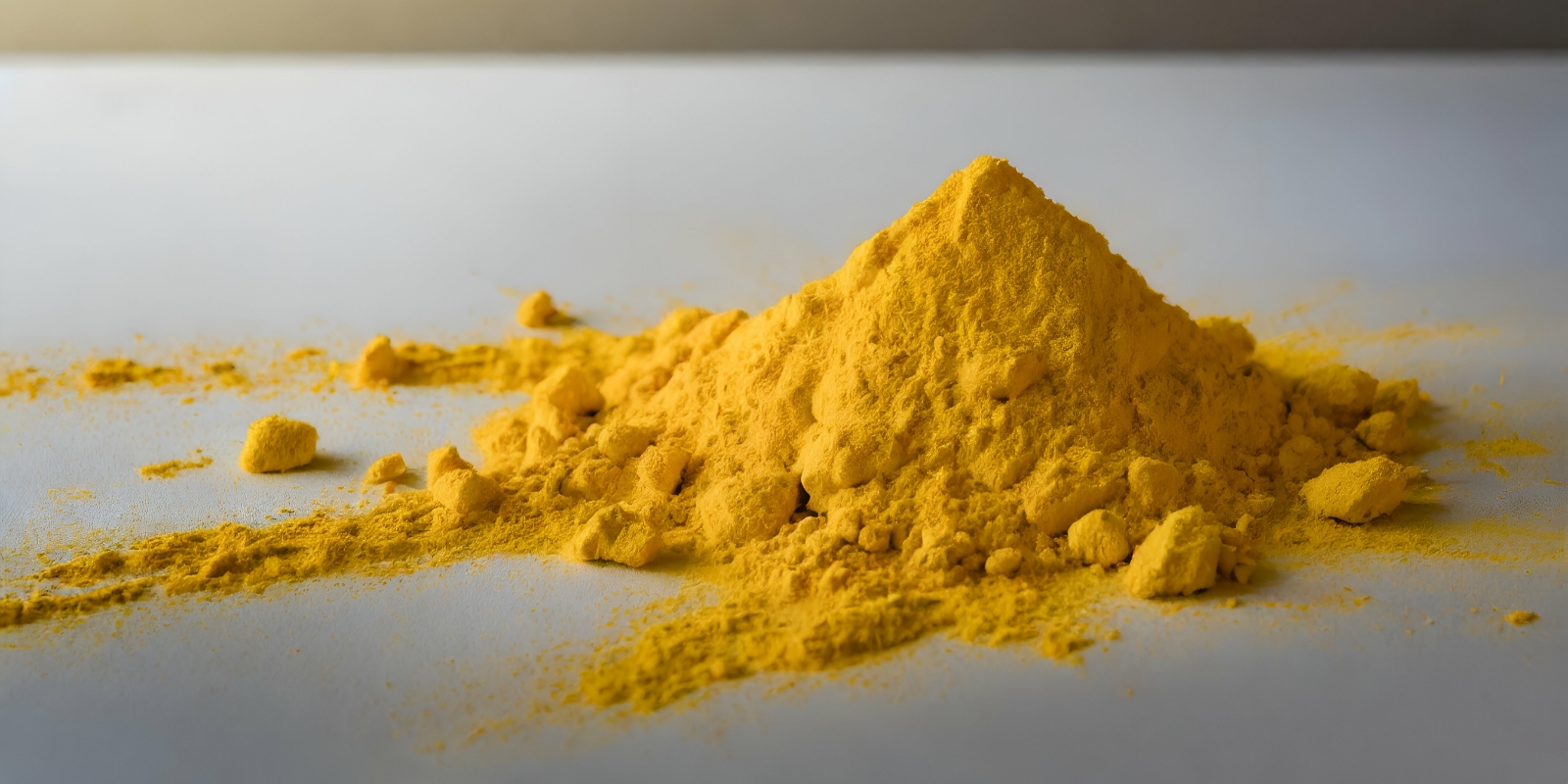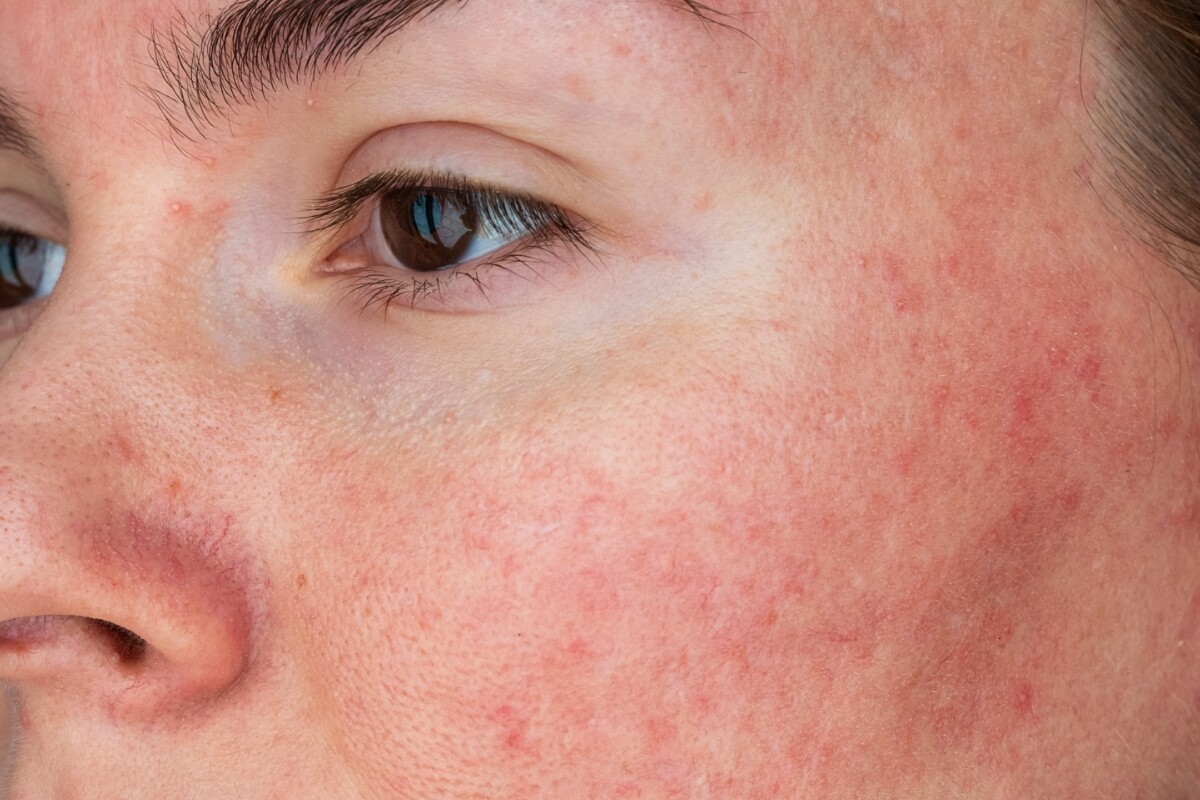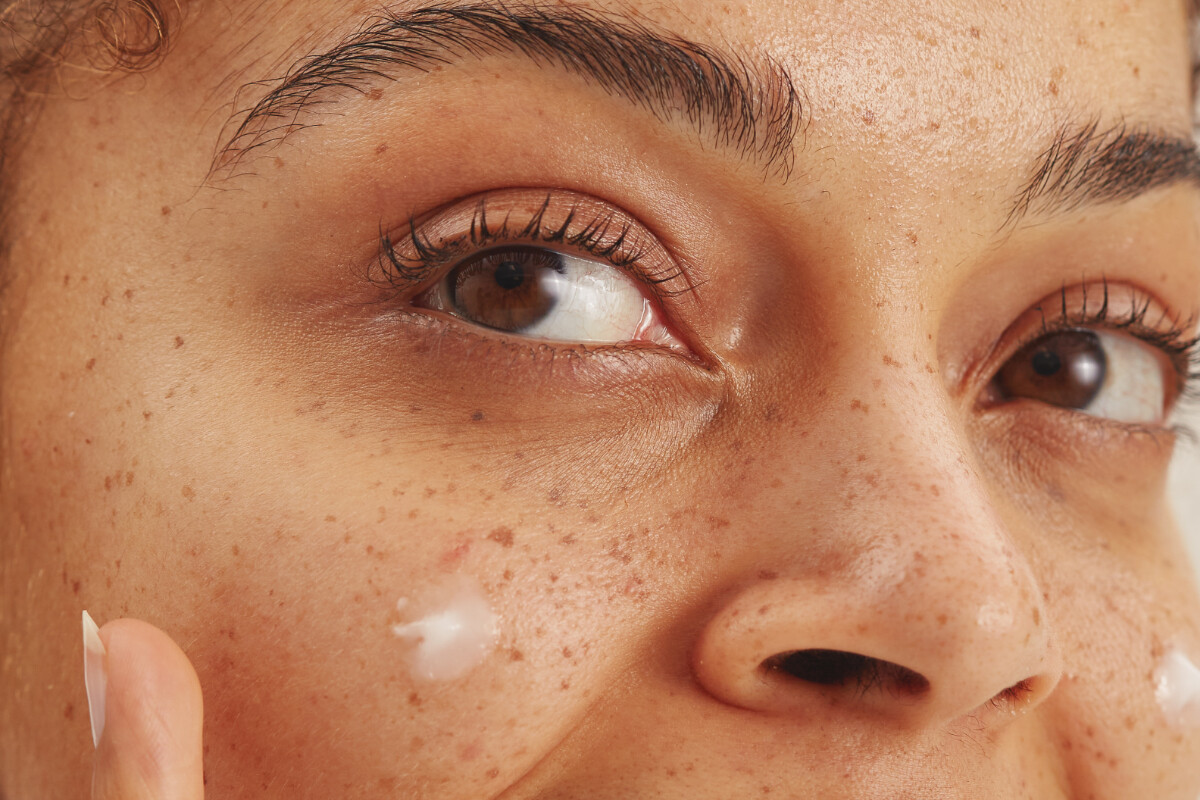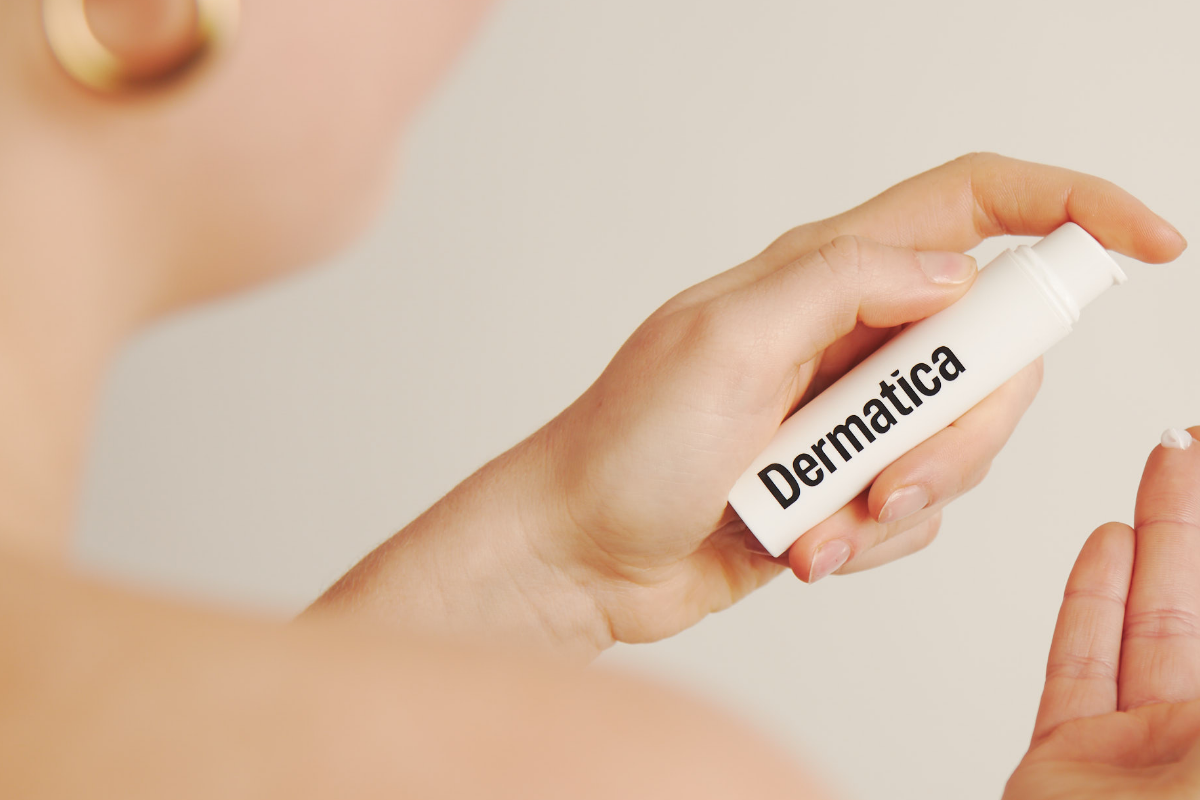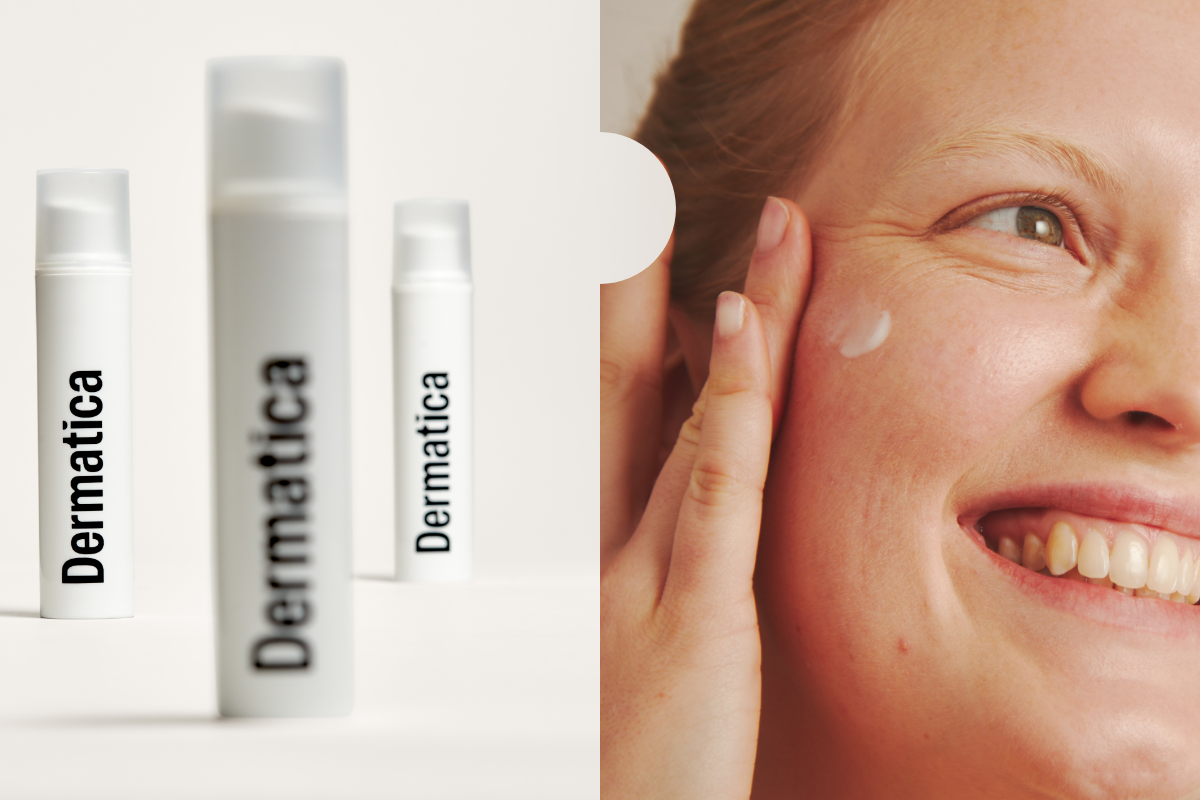Retinoids are vitamin A derivatives used in skin care products to help speed up the rate of skin cell turnover. (1) Tretinoin is a metabolite of retinoids whose skin benefits have been proven in clinical studies for over a decade. (2) At Dermatica we prescribe it for skin showing signs of ageing and hyperpigmentation.
An introduction to Tretinoin
Although different retinoids are recommended to treat different skin concerns (e.g. we prescribe adapalene specifically for the treatment of acne), they all work signalling to the skin to shed its damaged, dead skin cells while unclogging pores and making way for the healthy new cells underneath. You can find mild retinoids in over the counter skin care products – usually in the form of Retinol or Retinal. Or you can get prescription-strength topical retinoids, such as tretinoin, – at a higher strength.
What Does Tretinoin Do?
Tretinoin is the gold standard treatment for photoageing (sun damage) and hyperpigmentation. Dr Catriona Maybury, Dermatica’s Consultant Dermatologist describes it as “A true multitasker. It reverses pigmentation, improves fine wrinkles and unclogs pores.”
Tretinoin For Anti-ageing And Hyperpigmentation
Photoageing is how dermatologists describe skin that has experienced UV exposure, resulting in sun damage, dark spots and premature skin ageing. (2) Topical tretinoin has shown clinical efficacy as a treatment for photodamaged skin – showing significant improvements in fine lines, skin texture and uneven skin tone. (3)
Tretinoin creams have also been shown to boost collagen production, prevent collagen loss and block the induction of MMP (2) which are enzymes with the ability to degrade the proteins that hold the skin cells together. (4) This helps improve your skin’s appearance by preventing the natural loss of skin firmness that we experience as we age.
Is Tretinoin Right For My Skin Type?
Even though tretinoin also has a long legacy as an effective acne treatment, robust clinical studies have shown adapalene to be a better choice of prescription retinoid to treat both inflammatory and non-inflammatory acne. More stable than tretinoin, it can withstand being combined with other acne-targeted ingredients like clindamycin or benzoyl peroxide. It has also been shown to cause less skin irritation than tretinoin, so it could be a gentler solution for sensitive skin. If you’re interested in learning more, you can read our complete guide to Tretinoin here.
How To Get Tretinoin On Prescription
At Dermatica, our dermatology experts prescribe tretinoin in personalised formulas at strengths of 0.015–0.1%. By filling in a short online questionnaire, you can find out if tretinoin is the right active ingredient to help you reach your skin goals. Find out what formulas are suitable for your skin by visiting our website.
1. Yoham AL, Casadesus D. Tretinoin [Internet]. PubMed. Treasure Island (FL): StatPearls Publishing; 2021. Available from: https://www.ncbi.nlm.nih.gov/books/NBK557478/
2. Sitohang IBS, Makes WI, Sandora N, Suryanegara J. Topical tretinoin for treating photoaging: A systematic review of randomized controlled trials. International Journal of Women’s Dermatology. 2022 Mar;8(1):e003.
3. Noble S, Wagstaff AJ. Tretinoin. Drugs & Aging. 1995 Jun;6(6):479–96.
4. Kahari VM, Saarialho-Kere U. Matrix metalloproteinases in skin. Experimental Dermatology. 1997 Oct;6(5):199–213.
Caroline Ferry
Caroline Ferry is a freelance journalist and copywriter, who has written for Grazia Magazine, Harper's Bazaar, Tatler and Elle and consults for many skincare, fragrance and fashion brands.
Ash Sharma
Dr Ashwin Sharma is a medical doctor and writer with a particular interest in health technology, artificial intelligence and medical weight loss. He completed his training at the University of Leicester and Imperial College London, and has since been exploring the intersections of medicine, technology, and communication.

